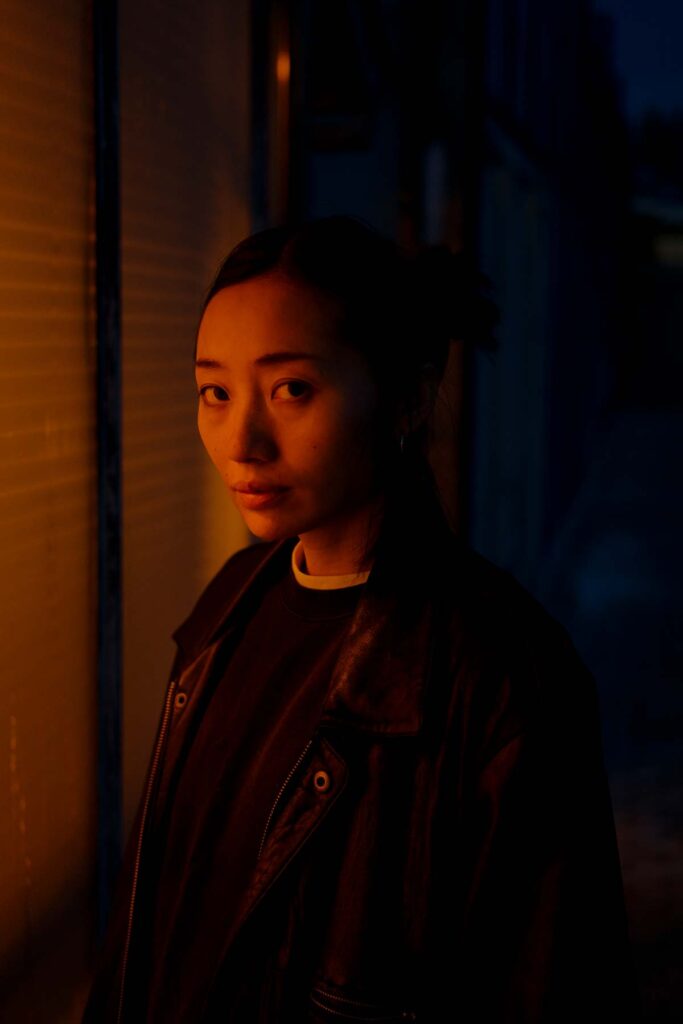Soft Spot for Core Values
“You need to build a lot of things from scratch. That’s why I really appreciate a lot of people here doing their work.” That’s how Coco Cobra describes what she values about living and working in Hanover, one of Germany’s smaller cultural bubbles. Seriously kicking things off with DJing just a second before the pandemic started, Coco Cobra didn’t feel too much pressure starting a career. That go-with-the-flow kind of attitude probably does not only come from her true love for music, but also because the DJ and producer is very concerned about other basic parameters that are important for a healthy and equal music scene.
Read below how Coco Cobra keeps her balance touring and who she considers in charge in order to get closer equality within the scene.
INTERVIEW: NADJA PREYER
PORTRAIT: CHRISTIAN WEIDNER
You’re based in Hanover, one of Germany’s “smaller big cities.” Still it seems pretty multifaceted when it comes to clubs and organizers. How is the scene developing?
It’s growing slowly. I think the “smaller big cities’ are important for the cultural landscape in general. Because not everyone can afford traveling to or even living in Berlin to enjoy the cultural input that this city has to offer. At the same time you need to build a lot of things yourself from scratch, which happens on a DIY-basis if you’re operating as a rising promoter or artist. That’s why I really appreciate a lot of people here doing their best to keep the scene up and running.
You’re part of Soft Spot, a collective that aims to “open up a space for experimental, electronic sounds and queer-feminist politics on and off the dancefloor.” How does that off-dancefloor programming look like?
Last year we curated a series of events called “Push the Buttons”, focusing on queer and feminist networking and education in Hannover in collaboration with another collective called “Das sogenannte Establishment.” The program included workshops that, on the one hand, were meant to serve as a practical introduction to DJing and producing for FLINTA*. On the other, the agenda was about giving insights into the topics of awareness, safer spaces and queer-feminist history of music and club culture. So the program was mainly focusing on club culture as a social and political space. Within the discussions we negotiated possibilities as well as limits of the queer-feminist function of clubs. For the future we definitely want to spend more time and financial resources on community building through workshops. But this depends on fundings as well as on our own capacities of course.

“As long as those in charge don’t start reflecting their position and power, there’s not gonna be a sustainable change.”
You started DJing in 2019, just a few months before covid hit. How did you feel about your career when you realized it might become a tough start?
When I started DJing, I wasn’t approaching it in a super professional way or with huge career goals. Actually I was just enjoying the time I had with browsing the web for music and discovering all the great stuff out there. actually the pandemic gave me the opportunity to play around without pressure and too many big plans. But I can imagine how hard it must have been for musicians who had all their shit like tours and release schedules planned out already…
DJing comes with a lot of partying, tavels and sleep deprivation. How do you keep your balance to that busy lifestyle?
First of all, I try to not party each time I’m “working”. Very often you have these tempting situations, because each time you play you’re meeting new (and most of the times very nice) people. Then you’re having a drink or two and suddenly, party mode’s on again. So you can get lost very easily. What helps me to maintain balance is giving my schedule a structure and prioritizing my energy. Listening to my body. And not booking too many gigs in phases when I’m not feeling too well.
Compared to when you started becoming active in the scene: what changed from your feminist and queer point of view?
There’s definitely more awareness for what’s going wrong with the status quo. I think we’ve reached a point where the internet and especially social media have helped a lot of artists being more visible and independent to promote their music. But visibility alone doesn’t pay the rent. Queer, bipoc and female artists are still underpaid and we’re still facing discrimination on and off stage. Key figures like bookers and club owner’s definitely have some work to do here. As long as those in charge don’t start reflecting their position and power, there’s not gonna be a sustainable change. One that makes space for the possibility of seeing true equality reigning.
Maybe you’d be up for finishing the following sentence: Electronic Dance Music is political, because …
… it was born in the Black, Latinx and BIPOC queer communities and it’s spirit roots in radical protest against the social norms and injustices.
Tracklist:
Sorry, no tracklist so far
Digital cover artwork by Chris Korda —
excerpt of “CHRIS KORDA: THE HEARTBREAKING TRAGEDY OF COLLECTIVE FAILURE”
Introduction jingle by Harmony Horizon
Visitez:
https://soundcloud.com/cococobra
https://www.instagram.com/coco__cobra/
https://www.instagram.com/soft_____spot/
